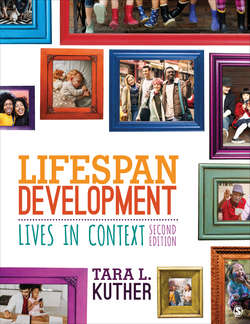Читать книгу Lifespan Development - Tara L. Kuther - Страница 399
На сайте Литреса книга снята с продажи.
Child-Centered and Academically Centered Preschool Programs
ОглавлениеThere are two general approaches to early childhood education. Academically centered preschool programs emphasize providing children with structured learning environments in which teachers deliver direct instruction on letters, numbers, shapes, and academic skills. Child-centered preschool programs take a constructivist approach that encourages children to actively build their own understanding of the world through observing, interacting with objects and people, and engaging in a variety of activities that allow them to manipulate materials and interact with teachers and peers (Kostelnik, Soderman, Whiren, & Rupiper, 2015). Children learn by doing, through play, and learn to problem solve, get along with others, communicate, and self-regulate.
Montessori schools, first created in the early 1900s by the Italian physician and educator Maria Montessori (1870–1952), exemplify the child-centered approach, in which children are viewed as active constructors of their own development and are given freedom in choosing their activities. Teachers act as facilitators, providing a range of activities and materials, demonstrating ways of exploring them, and providing help when the child asks. The Montessori approach is credited with fostering independence, self-regulation, and cognitive and problem-solving skills.
In this Montessori classroom, children explore and play together.
AP Photo/Lori Wolfe
